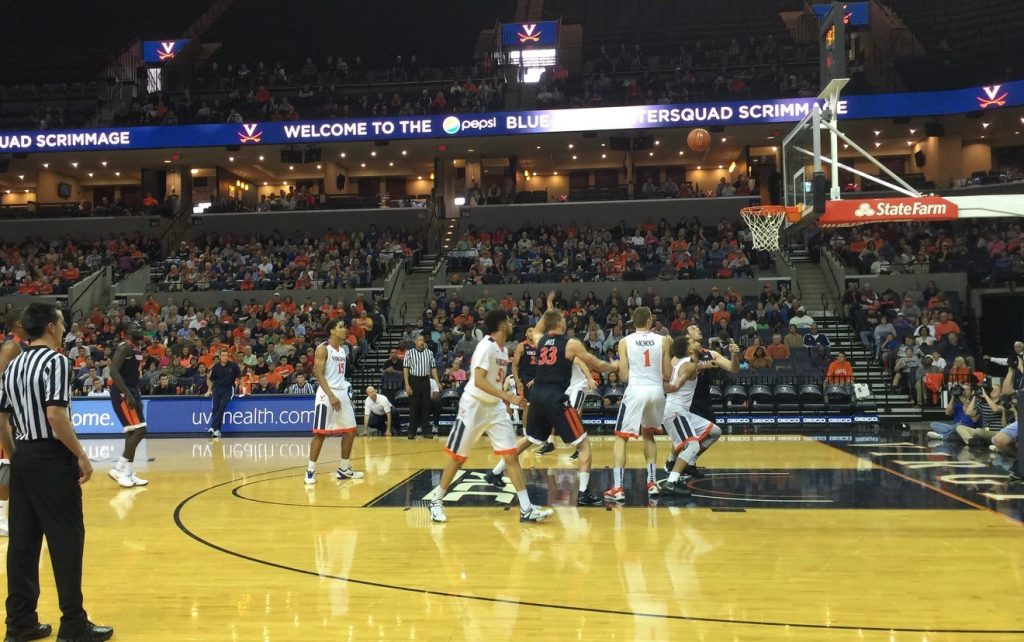- What Will the New American Revolution of Limiting the Power of the Regulatory State Mean for Businesses?
- What Will the New American Revolution of Limiting the Power of the Regulatory State Mean for Businesses?
- The Copyright Office Issues Its Long-Awaited Report on AI Training Material and Fair Use. Will It Stymie the U.S. AI Industry?
- What Risk Does Your Business Face for Creating Social Media Posts in the Studio Ghibli Style?
- Going From March Madness to Trademarks Madness
Latest Blog Posts
Supreme Court Paves the Way for Paying Big-Time College Athletes

The handwriting of the Supreme Court is on the wall. If left to the courts, they will rule that NCAA college amateurism rules violate antitrust law. I expect major-college athletes, at least football and men’s basketball players, will be paid employees easily within a decade, perhaps much sooner.
You probably have heard about the Supreme Court’s recent 9-0 ruling against the NCAA in a college sports antitrust case. Buried in the less-publicized parts of the case is the future end of amateurism in big-time college sports.
To explain why, some background is necessary. This case was a class action brought in the name of a West Virginia football running back, Shawne Alston. He challenged NCAA amateurism rules, both the NCAA prohibition on schools paying athletes and its restrictive rules on education-related benefits.
After a lengthy trial, the trial court issued a split decision. It held the NCAA violated antitrust law with its restrictive rules on education-related benefits. That decision was affirmed by the Ninth Circuit and, in this case, by the Supreme Court. Because NCAA restrictions on education-related benefits must now be pared back, colleges recruiting the most talented athletes will now compete to offer better education-related benefits to win those recruits.
But that’s not the sexy part. The trial court split the result by ruling the NCAA could continue to ban paying athletes because it found many fans like college sports because they are competitions between unpaid students. If those athletes were paid professionals, the trial court found interest in college sports would wane, which would result in fewer ticket sales and less TV revenue for college sports. It found college sports wouldn’t compete as effectively with pro sports for entertainment dollars.
The Ninth Circuit upheld that ruling. Interestingly, Alston’s attorney did not appeal that ruling to the Supreme Court, so the Supreme Court couldn’t address it.
This rationale against paying players is outdated and wouldn’t come out the same in a trial today. That’s because college athletes will be able to earn NIL endorsement money starting this summer, so they now effectively will be professional athletes.
NIL stands for “name, image, and likeness.” A celebrity, such as a prominent athlete, can financially exploit NIL rights by activities such as doing paid endorsements on social media and TV commercials.
19 states have enacted laws authorizing college athletes to earn NIL money, and the laws in six states take effect this summer. These new laws will force the NCAA to release a new rule this summer enabling college athletes to earn NIL money.
That means a new class action antitrust lawsuit challenging the NCAA rules against paying players would almost certainly succeed because the rationale that the public wants college players to be amateurs is killed by NIL.
The Supreme Court also questioned the legitimacy of the antitrust analysis used by the trial court concerning paying players. Effectively, the trial court held colleges can conspire (through the NCAA) to set wage rates in the labor market for college athletes at zero so the colleges can compete more effectively in a different market, which is selling tickets and TV rights to sporting events. The Supreme Court cast doubt on the antitrust legitimacy of making such a tradeoff. Yet, because Alston didn’t appeal to the Supreme Court the NCAA rules against paying athletes, it couldn’t rule on this issue.
It’s possible NCAA amateurism rules will be killed before the courts resolve the inevitable next antitrust challenge to them. It takes years for litigation to wind through federal courts. Perhaps various states will pass laws enabling the paying of players, or perhaps the federal government will. Maybe the NCAA will abandon amateurism on its own terms to attempt to control how professionalism is implemented rather than having it decided by various legislatures.
As long as we have big-time college athletics, eventually big-time college athletes will become paid employees, at least in the revenue-positive sports of football and men’s basketball. It’s not a question of whether that will happen, but only when and precisely how.
Colleges can still have amateur athletics. A repeal of NCAA amateurism rules would not require paying players, but good luck landing elite pre-professional prospects without doing so. Remaining amateur would require colleges to recruit students who want to go to college primarily to get a college education and degree and for whom athletics will be only an extracurricular activity and likely not a post-graduation profession. Colleges can have big-time athletics or amateurism but, soon, not both.
Written on June 22, 2021
by John B. Farmer
© 2021 Leading-Edge Law Group, PLC. All rights reserved.



